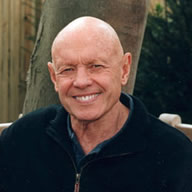The 7 Habits of Highly Effective People

Stephen R. Covey's book, The 7 Habits of Highly Effective People®, has been a top-seller for the simple reason that it ignores trends and pop psychology for proven principles of fairness, integrity, honesty, and human dignity.
|
The 7 Habits of Highly Effective People Habit 1 : Be Proactive |
|
Your life doesn't just "happen." Whether you know it or not, it is carefully designed by you. The choices, after all, are yours. You choose happiness. You choose sadness. You choose decisiveness. You choose ambivalence. You choose success. You choose failure. You choose courage. You choose fear. Just remember that every moment, every situation, provides a new choice. And in doing so, it gives you a perfect opportunity to do things differently to produce more positive results. |
|
The 7 Habits of Highly Effective People Habit 2: Begin with the End in Mind |
|
So, what do you want to be when you grow up? That question may appear a little trite, but think about it for a moment. Are you--right now--who you want to be, what you dreamed you'd be, doing what you always wanted to do? Be honest. Sometimes people find themselves achieving victories that are empty--successes that have come at the expense of things that were far more valuable to them. If your ladder is not leaning against the right wall, every step you take gets you to the wrong place faster. |
|
The 7 Habits of Highly Effective People Habit 3: Put First Things First |
|
To live a more balanced existence, you have to recognize that not doing everything that comes along is okay. There's no need to overextend yourself. All it takes is realizing that it's all right to say no when necessary and then focus on your highest priorities. |
|
The 7 Habits of Highly Effective People Habit 4: Think Win-Win |
|
Think Win-Win isn't about being nice, nor is it a quick-fix technique. It is a character-based code for human interaction and collaboration.
Many people think in terms of either/or: either you're nice or you're tough. Win-win requires that you be both. It is a balancing act between courage and consideration. To go for win-win, you not only have to be empathic, but you also have to be confident. You not only have to be considerate and sensitive, you also have to be brave. To do that--to achieve that balance between courage and consideration--is the essence of real maturity and is fundamental to win-win. |
|
The 7 Habits of Highly Effective People Habit 5: Seek First to Understand, Then to Be Understood |
||||||||
|
Communication is the most important skill in life. You spend years learning how to read and write, and years learning how to speak. But what about listening? What training have you had that enables you to listen so you really, deeply understand another human being? Probably none, right?
|
|
The 7 Habits of Highly Effective People Habit 6: Synergize |
|
To put it simply, synergy means "two heads are better than one." Synergize is the habit of creative cooperation. It is teamwork, open-mindedness, and the adventure of finding new solutions to old problems. But it doesn't just happen on its own. It's a process, and through that process, people bring all their personal experience and expertise to the table. Together, they can produce far better results that they could individually. Synergy lets us discover jointly things we are much less likely to discover by ourselves. It is the idea that the whole is greater than the sum of the parts. One plus one equals three, or six, or sixty--you name it. |
|
The 7 Habits of Highly Effective People Habit 7: Sharpen the Saw |
||||||||
|
Sharpen the Saw means preserving and enhancing the greatest asset you have--you. It means having a balanced program for self-renewal in the four areas of your life: physical, social/emotional, mental, and spiritual. Here are some examples of activities:
|
|
About Stephen R. Covey |
|
Personal Bio |
|
Over his lifetime, Stephen inspired millions with the power of universal principles. As he traveled the globe many times over, his message was a simple one: for true success and meaning in life, we must be principle-centered in all areas of life. A teacher at heart, he often taught: "there are three constants in life: change, choice and principles."
|






